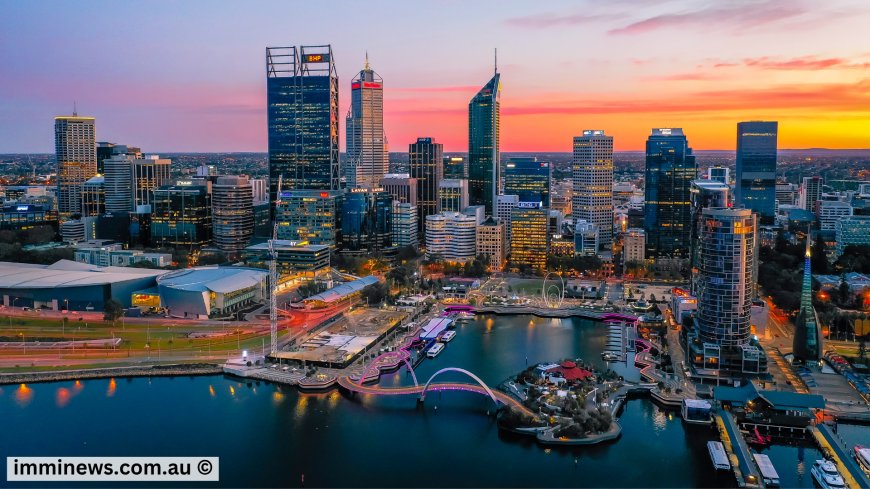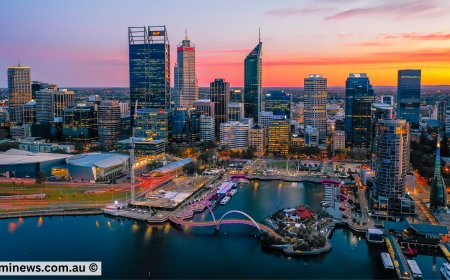Western Australia Opens Doors to Migrants – But Is It Enough?
WA’s immigration settings face scrutiny as experts reveal the roles migrants play in workforce, housing, regional growth, and multicultural balance. Discover more.

Immigration remains one of Western Australia's most hotly debated topics—especially as the state officially surpasses a population of 3 million. With housing affordability plummeting and labour shortages persisting across vital sectors, many are asking: Are WA’s immigration settings right for today’s needs?
A recent expert panel hosted by ABC Radio Perth aimed to unravel fact from fiction. In this article, we’ll explore the significance of WA’s immigration settings—backed by expert commentary, high-authority data, and practical insights.
The Significance of Western Australia’s Immigration Settings
1. Immigration as a Pillar of Workforce Sustainability
One of the clearest themes emerging from the panel is the crucial role migrants play in WA’s workforce, particularly in essential sectors like healthcare, aged care, education, and construction.
Michael McGowan, Executive Director of the Housing Industry Association, highlighted the urgency:
“We need 10,000 new construction workers every year, 2,000 of them skilled migrants. Without them, we simply can't meet housing demand.”
This workforce shortage is echoed across many industries, from hospitals to tech. According to the Migration WA portal, WA’s skilled migration program targets workers in demand, enabling the state to address labour shortfalls strategically and sustainably.
Want to see how WA actively recruits skilled migrants? Check out WA’s Invitation Round for Skilled Migrants to understand who’s being invited and why.
2. International Students Fuel Economic and Skilled Sector Growth
Far from being a drain on resources, international students are vital contributors to WA’s social and economic fabric.
Derryn Belford of StudyPerth notes:
“If you didn't have international students, you probably wouldn't have anyone working in aged care, retail, or hospitality while they study. Post-graduation, they shift into skilled sectors.”
Currently, WA welcomes around 40,000 international students annually. These students pay tuition fees, spend in the local economy, and often transition into critical industries.
The Northern Territory’s migration program shows similar positive outcomes, reinforcing the broader national importance of student-to-skilled migrant pathways.
3. Regional Sustainability Hinges on Migrant Populations
Beyond Perth, many regional communities rely heavily on migrants to sustain local economies and essential services. A blog commenter named Robert stated:
“Immigration is vital for regional WA. Workers are needed for services that sustain our towns—and they pay taxes.”
Government programs like Build a Life in WA offer financial incentives to attract skilled migrants to regional areas, especially in construction and trades like plumbing and carpentry. This strategic focus ensures regional towns remain viable amid national population shifts.
4. Blaming Migrants for the Housing Crisis Is Misguided
A common complaint heard in public discourse is that immigrants worsen the housing crisis. However, this claim lacks nuance and empirical support.
Professor Alan Duncan, Director of the Bankwest Curtin Economics Centre, clarifies:
“Our research found just 694 new rental units added over 18 months—while WA's population grew by 120,000. It’s a supply problem, not a migration problem.”
In short, WA’s housing stress stems from a decade-long failure to build adequate housing stock—not an influx of migrants. Federal initiatives like the Housing Australia Future Fund aim to reverse this trend, but local and state efforts must align.
5. Immigration Debates Risk Overlooking Social Contributions
As Anne Aly, Federal Minister for Multicultural Affairs, aptly put it:
“When we only talk about migration in terms of numbers, it becomes counterproductive. Migrants are people, not statistics.”
Racial overtones and scapegoating narratives distort public perception. Migrants bring skills, diversity, and resilience—and help shape the vibrant multicultural society that WA is proud of.
To support migrants better, expert panellists urged for policy clarity and consistency, especially around skilled visa programs. Immigration lawyer Sarah Frankel stressed how confusing and emotionally draining current processes can be for those seeking long-term residency.
Western Australia’s immigration settings are not just about numbers—they’re about building a resilient future, from the city centres to remote communities. Migrants play indispensable roles in healthcare, construction, education, and beyond. While WA faces real challenges—like housing shortages and infrastructure strain—immigration is more often part of the solution than the problem.
Want to understand if you or someone you know qualifies for migration opportunities in WA?
Explore our free migration consultation services to get personalised advice and take the first step today.
Stay Informed: Check out more articles at immiNews for expert insights, updates on invitation rounds, and the latest immigration news.
Quick Recap:
-
WA needs migrants to sustain key industries.
-
International students are vital economic contributors.
-
Housing shortages are rooted in under-building, not immigration.
-
Regional WA relies on skilled migration to remain viable.
-
Policy must focus on integration and long-term planning, not blame.
By recognising the true significance of immigration, WA can shape a future that’s inclusive, economically vibrant, and socially cohesive.
What's Your Reaction?
 Like
0
Like
0
 Dislike
0
Dislike
0
 Love
0
Love
0
 Funny
0
Funny
0
 Angry
0
Angry
0
 Sad
0
Sad
0
 Wow
0
Wow
0









































































































